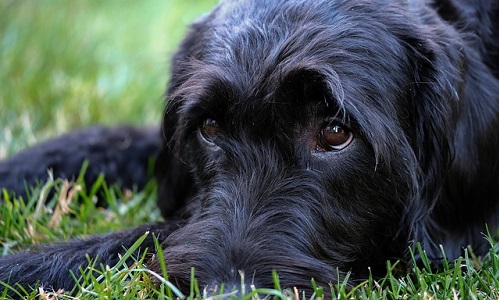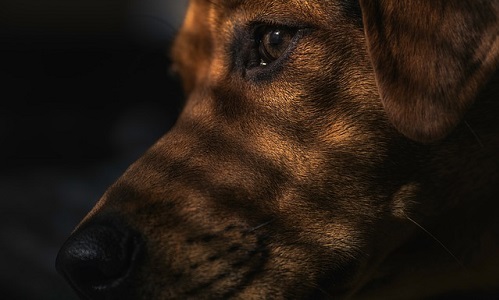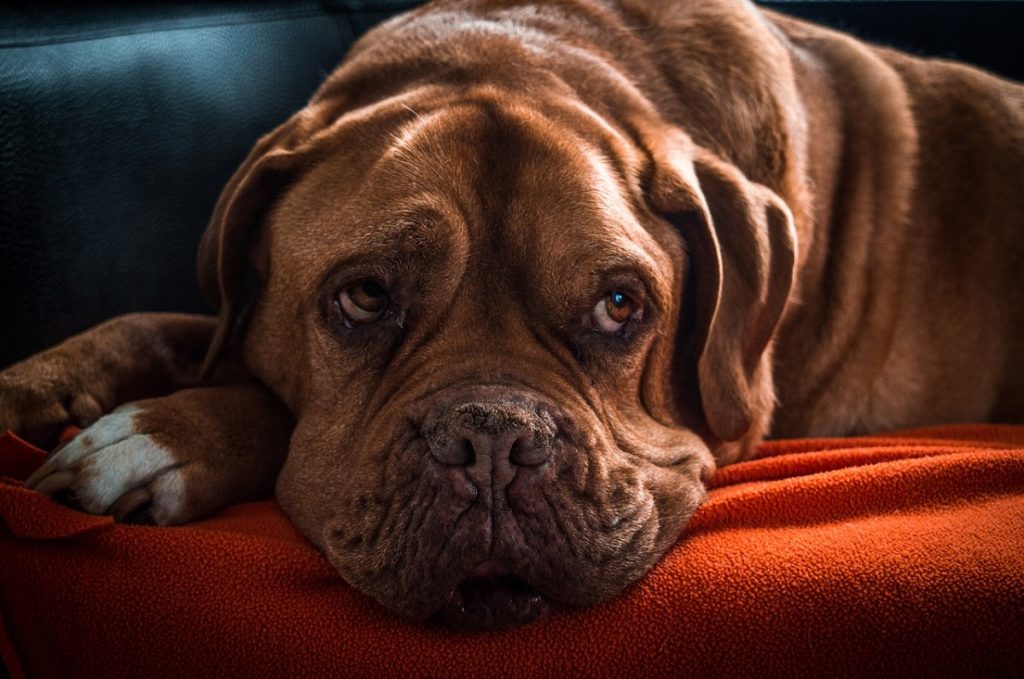Taking your dog to the vet can feel scary, especially if your dog after anesthesia is whining. As each dog is unique, it’s important to remember that whining can be for different reasons. Especially if whining persists, it is always best to consult with your vet professional.
What Factors Influence Dog Anesthesia After Effects
 Just as people are affected by caffeine differently, each dog may react uniquely to anesthesia.
Just as people are affected by caffeine differently, each dog may react uniquely to anesthesia.
It’s good to take into account a few factors.
- Level of Anesthesia
Different procedures require different amounts of anesthesia. This means side effects may be greater or last for a longer or shorter period of time.
- Local vs. General Anesthesia
-
-
- Local is placed on one specific area of the body, meaning there is less overall effect and symptoms after.
- General anesthesia induces your pet into an unconscious state. Utilized for more intensive procedures, such as fractures, canine neutering or spaying and surgeries.
-
- Pet Age
Younger dogs and older ones are more susceptible to negative side effects from anesthesia. Dr. Amber Hopkins, a veterinary anesthesiologist at San Diego’s Veterinary Specialty Hospital says, “The risk with older pets is more related to any underlying medical illnesses they may have. We have to be especially careful with how older pets are positioned during surgery to help protect their joints especially if they suffer from arthritis.”
- Pet Weight
How much your dog weighs can affect the influence anesthesia has on your canine buddy. For example, a very skinny dog with low levels of body fat may be impacted more heavily than a larger breed. This is because a lot of anesthetic drugs are absorbed by the fat tissues of the body. If your dog does not have much fat, this can mean more of the drug is going into your dog’s bloodstream. Smaller doses are recommended but, if they do get too much, effects can be more extreme. Some dog breeds are more susceptible to effects because of their body fat and metabolism include the Greyhound, Borzoi, and Irish Wolfhound.
Common Dog Anesthesia After Effects
Just as with human medicine and procedures, it is common to experience side effects. For dogs, it is typical for them to experience:
- Grogginess
- Nausea
- Lack of interest in food and/or water, often correlating to nausea and/or grogginess
- Awkward balance due to the impact on the nervous system, which can affect depth perception
- Feeling cold. It can be hard for dogs to regulate body temperature temporarily after anesthesia
If there’s whining by your dog after anesthesia it is likely due to one of the symptoms discussed in the above section. For example, he may:
Feel one of those symptoms, like getting cold or having nausea. He doesn’t know how to express himself and may whine in discomfort. Wrap him in a blanket and get him cozy to see if that addresses his issue.
- Be one of the dog breeds that may be more likely to have a negative reaction to anesthesia, such as a Greyhound due to low body fat, and whine accordingly. There are other breeds that are more likely to experience anesthesia problems, as well.
What Dog Breeds Are More Prone to Anesthesia Issues?
Certain types of dogs are more at risk or may experience more discomfort after.
Dogs with Shorter Noses & Face Shapes
Breeds like Pugs and Boston Terriers, due to their smaller or “squashed” noses are more likely to have trouble getting anesthesia. This can also result in more difficulty with breathing after the anesthesia, which could lead to whining.
Tracheal Breeds like Poodles, Yorkshire Terriers & Pomeranians
Due to tracheal related problems, Poodles, Yorkshire Terriers, Pomeranians, and other breeds are more likely to be coughing the following week. This may be uncomfortable and relate to whining, as well.
Breeds with Anesthesia Sensitivity
 As mentioned with regards to body fat, there are some breeds that are more sensitive to anesthesia than others.
As mentioned with regards to body fat, there are some breeds that are more sensitive to anesthesia than others.
We’ve created a guide with more information about sensitivity with certain breeds, like the Belgian Sheepdog, Saluki, and Whippet. Learn more about your dog’s breed with anesthesia sensitivity here.
Other Tips for Dog Surgery
If your dog hasn’t had surgery yet or may have another one in the future, it’s always advised to learn more tips to prepare your dog for surgery.
If your dog’s whining continues to persist, call your veterinarian for further guidance.




